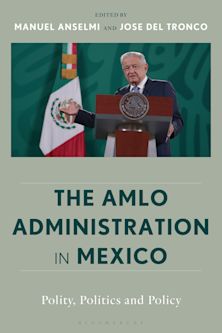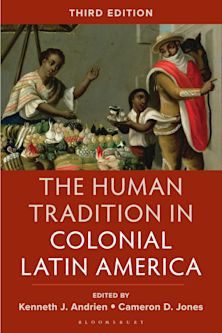The Banana Wars
United States Intervention in the Caribbean, 1898–1934
- Textbook
The Banana Wars
United States Intervention in the Caribbean, 1898–1934
- Textbook
This product is usually dispatched within 3 days
- Delivery and returns info
-
Free CA delivery on orders $40 or over
Description
The Banana Wars: United States Intervention in the Caribbean, 1898-1934 offers a sweeping panorama of America's tropical empire in the age spanned by the two Roosevelts and a detailed narrative of U.S. military intervention in the Caribbean and Mexico. In this new edition, Professor Langley provides an updated introduction, placing the scholarship in current historical context. From the perspective of the Americans involved, the empire carved out by the banana warriors was a domain of bickering Latin American politicians, warring tropical countries, and lawless societies that the American military had been dispatched to police and tutor. Beginning with the Cuban experience, Langley examines the motives and consequences of two military occupations and the impact of those interventions on a professedly antimilitaristic American government and on its colonial agents in the Caribbean, the American military. The result of the Cuban experience, Langley argues, was reinforcement of the view that the American people did not readily accept prolonged military occupation of Caribbean countries.
In Nicaragua and Mexico, from 1909 to 1915, where economic and diplomatic pressures failed to bring the results desired in Washington, the American military became the political arbiters; in Hispaniola, bluejackets and marines took on the task of civilizing the tropics. In the late 1920s, with an imperial force largely of marines, the American military waged its last banana war in Nicaragua against a guerrilla leader named Augusto C. Sandino. Langley not only narrates the history of America's tropical empire, but fleshes out the personalities of this imperial era, including Leonard Wood and Fred Funston, U.S. Army, who left their mark on Cuba and Vera Cruz; William F. Fullam and William Banks Caperton, U.S. Navy, who carried out their missions imbued with old-school beliefs about their role as policemen in disorderly places; Smedley Butler and L.W.T. Waller, Sr., U.S.M.C., who left the most lasting imprint of A
Table of Contents
Chapter 2 Leonard Wood and the White Man's Burden
Chapter 3 TR and the Use of Force
Chapter 4 The Second Cuban Intervention, 1906
Chapter 5 Cuba Occupied
Part 6 II Teach them to Elect Good Men
Chapter 7 The Nicaraguan Menace
Chapter 8 The Nicaraguan War, 1910–1912
Chapter 9 The Mexican Crisis
Chapter 10 Veracruz
Chapter 11 The Rulers of Veracruz
Part 12 III Civilizing the Tropics
Chapter 13 Turbulent Hispaniola
Chapter 14 The Pacification of Hispaniola: 1
Chapter 15 The Pacification of Hispaniola: 2
Part 16 IV The Last Banana War
Chapter 17 Interregnum, 1921–1925
Chapter 18 The Second Nicaraguan Civil War, 1925–1927
Chapter 19 The Sandino Chase
Chapter 20 The Last Banana War
Product details
| Published | Nov 01 2001 |
|---|---|
| Format | Paperback |
| Edition | 1st |
| Extent | 265 |
| ISBN | 9780842050470 |
| Imprint | Rowman & Littlefield |
| Dimensions | 227 x 156 mm |
| Series | Latin American Silhouettes |
| Publisher | Bloomsbury Publishing |
Reviews

ONLINE RESOURCES
Bloomsbury Collections
This book is available on Bloomsbury Collections where your library has access.



































